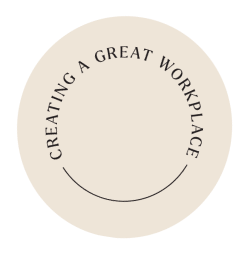An Interview with Juan Suarez
I recently had the opportunity to speak to Juan Suarez, Vice President of Diversity, Equity, and Inclusion at Southwest Airlines, about what DE&I means to him. I think you’ll enjoy reading about Juan’s unique perspective on ways leaders can prioritize these vital matters and how Southwest is actively staying committed to improving DE&I within their organization.
———————————
Q: Juan, can you tell us what Diversity, Equity, and Inclusion means to you?
- If you Google “Diversity, Equity, and Inclusion,” you will find so many different definitions of what it means to so many different people, but I like to take a step back and look at it in very simple terms. When I first started at Southwest, I remember learning our mission statement for the first time and how much it resonated with me. Our mission is “to extend care, concern, and respect to each other, just like we do to our customers,” and at the end of the day, Diversity, Equity, and Inclusion is all about accepting and valuing what people bring. So, to me, DE&I is just a further extension of that mission statement that we’ve always stood for at Southwest. Simply put, showing care, concern, and respect is really what DE&I is all about.
Q: What are some effective ways leaders can be trained to prioritize DE&I within their departments and teams?
- We have learned over the years that a focus on DE&I is not something that is “extra.” It’s necessary to incorporate it into our business model and business structure, and we are fortunate that we have such significant buy-in from the leadership at the top, which I believe to be critical.
Once you establish that it’s a part of the business strategy, it makes it much easier for leaders to incorporate it. With that, it has to be intentional. There are so many demands on leaders and organizations, but we have to be intentional when it comes to DE&I. We do that by doing a great deal of talking about these issues, even though it often leads to approaching uncomfortable conversations. Of course, we can put training in place, which we do at Southwest, and that’s important; but, I’ve learned that the more we have extended dialogue, the more people feel the freedom to ask questions, and the more people begin to feel comfortable being vulnerable. An open dialogue helps the entire company feel more comfortable, buy into the importance of DE&I, and join the leaders as they continue to strive to do better.
Q: How have you navigated advocating for Diversity, Equity, and Inclusion with employees who don’t understand its importance?
- Something that we have to remember is that we’re focusing on inclusion, not agreement. Having everybody agree is not the objective. The objective is to have open, respectful, and professional conversations. That’s what I try to keep in the back of my mind when talking with individuals who may not fully be on board with the plan in place or who may not understand how critical DE&I is to our organization. I recommend trying to have the conversation and explain the purpose. At the end of the day, you may not agree, but having respectful dialogue is key.
I often tell the story of when I had an employee send me a video that was titled DE&I Must Die. Of course, I didn’t initially want to watch, but after some thought, I realized that this employee was part of the staff, and therefore, their view mattered just as much as anyone else’s. I owed it to this individual to watch the video, so I did. I then reached out to the employee and explained that although I disagreed with it, there were some nuggets I believed we could discuss. We then had an exchange about the video, and at the end of the conversation, he asked if we could talk again. Neither of us convinced each other of our differing perspectives, but we opened the door for further dialogue, which was the goal. Again, having a conversation does not necessarily mean everyone will agree, but it can create space for further thought.
I also believe it’s essential for leaders to recognize that we must be just as vulnerable in this space as the people we are leading. We may not have all the answers, and we may mess up, but being vulnerable and willing to ask questions about things we don’t understand will create a healthy space for openness. If you can have that type of vulnerable relationship, you will move in the right direction to achieve inclusion, regardless of differing views or opinions.
Q: Hiring bias can occur unconsciously during the interview process. What are some steps organizations can take to reduce or even eliminate the impact of unconscious bias?
- Now, if I had the key to that question, I would retire and never have to work again! It truly is so important.
Step one is recognizing and accepting the fact that we all have biases. At Southwest, we require our hiring managers to undergo unconscious bias training before engaging in the hiring process. The idea is to get them to start recognizing that unconscious bias actually exists. I always encourage our leaders to take the informal unconscious bias test that Harvard has if they don’t think they have any bias because they may be surprised. I know I was surprised when I took it. So, recognizing that we have them is step number one.
Step two is to talk about our biases. I believe that talking about these biases can help us ensure we are not always looking to hire people based on familiar looks, race, schools, etc. The truth is, the DE&I department at Southwest would not be very robust if the entire team looked just like me. We know that organizations thrive when there is diversity of thought on teams, and the only way to do that is to diversify during the hiring process. At Southwest, we put a focus on this because we recognize that having bias is human nature. So, we address it with hopes to better represent the communities we serve by diversifying our talent pool.
Q: Many companies are committed to improving Diversity, Equity, and Inclusion in the
workplace, but don’t know where to begin. How would you recommend initially approaching DE&I?
- At Southwest, we started by developing a corporate strategy to improve the DE&I landscape. This was good for many reasons.
- It helped establish DE&I as part of the overall business strategy.
- It helped provide a roadmap for programs we implemented, messages we sent to leaders, ways to communicate with employees, and more.
This strategy created a foundation that we continue to build upon today. We also looked at organizations that were much further along in this space and used them as role models for how to build the foundation properly.
The goal is that you never want your DE&I approach to be reactive. You want it to be part of your decisions, from the hiring process to business, financial, and operational decisions. I believe making it part of a strategy and making it a business focus helps solidify the position DE&I takes in an organization and will set you up for success.
Q: What are you most proud of in terms of Southwest’s legacy, and what final words do you have for the Unstoppable Cultures community?
- We are so fortunate because we have an incredible culture and a fantastic foundation to build upon, thanks to people like Colleen Barrett and you, Ginger! Our people culture is very strong, and there’s so much synergy between your people culture and your DE&I culture. At Southwest, we prioritize building a family, showing respect, and joining together, which are critical to an inclusive environment. I mentioned our mission statement earlier, which also lays out an excellent pathway to achieving our objectives.
I would encourage any organization starting in this space to go back and reflect on what your values are as an organization because you need strong values, you need to be able to communicate those values, and you need to be able to build upon them for your DE&I to thrive. At Southwest, we are very fortunate because our values align almost perfectly with our DE&I objectives, which sets us up to excel.
—————————————-
About Juan Suarez
Juan Suarez is Vice President of Diversity, Equity, & Inclusion at Southwest Airlines Co. Juan is responsible for creating and driving the development of diversity initiatives that align with Southwest’s business objectives and advises on policies and practices involving diversity, equity, and inclusion. He serves as the executive sponsor for the Diversity Council and is an active member of Southwest’s Social Topics Committee. Prior to being named Vice President of Diversity, Equity, & Inclusion, Juan served as Managing Director, Deputy General Counsel. Juan received his Juris Doctorate in 1993 from Cornell University Law School with a concentration in Trial Advocacy and his Bachelors of Arts in Public Administration in 1990 from the University of Oklahoma. Prior to working for Southwest Airlines, Juan was in private practice with a national law firm representing employers in employment litigation and other employment-related matters.
—————————————-
I’m so grateful for Juan’s advice on how to improve Diversity, Equity, and Inclusion within your organization. I hope you found his perspective as insightful as I did. Together, we truly can build Unstoppable Cultures!
Sincerely,
Ginger Hardage





